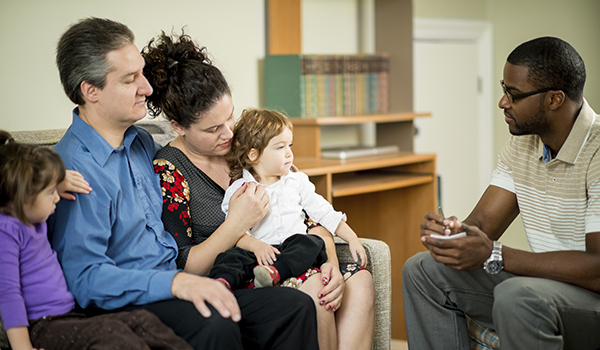Understanding the Key Roles and Responsibilities in the Foster Care System
Understanding the various roles and responsibilities for new or prospective foster parents and youth entering the foster care system can help ease the transition and clarify what to expect. Foster care is a team effort that involves multiple individuals, each playing a vital role in providing stability, care, and support for children who are temporarily or permanently separated from their biological families. In this blog, we’ll break down the critical roles in foster care and guide foster parents and youth on how everyone works together to create a safe and nurturing environment.
The Role of Foster Parents
Foster parents are caregivers who temporarily welcome children or youth into their homes, providing them with stability, love, and support. Their role is crucial in helping a child feel safe, cared for, and valued while in foster care.
Responsibilities of Foster Parents:
-
- Provide a Safe and Nurturing Home: Foster parents are responsible for meeting the child’s daily needs, including providing food, shelter, clothing, and emotional support.
- Support the Child’s Development: Foster parents encourage the child’s educational, emotional, and social development by enrolling them in school, participating in activities, and fostering positive relationships.
- Work with Caseworkers: Foster parents collaborate with caseworkers and social services to create a care plan for the child. This can include attending meetings, providing feedback on the child’s progress, and helping with reunification efforts when applicable.
- Advocate for the Child: Foster parents advocate for the child’s well-being, ensuring the child has access to medical care, therapy, or other necessary resources.
Key Consideration for Foster Parents:
Being a foster parent requires flexibility, patience, and compassion. The goal is often reunification with the child’s biological family, so foster parents must be prepared for temporary placements and transitions.

The Role of Youth in Foster Care
Youth in foster care may feel uncertain or anxious about their placement. They need to understand their role and know that they are not alone in this journey. The foster care system is designed to provide them with safety, support, and a path to stability.
What Youth Can Expect:
-
- A Safe Environment: Foster care offers youth a safe place to stay while their biological family situation is addressed.
- Support for Their Needs: Foster parents, social workers, and other professionals ensure that youth have access to education, healthcare, and emotional support.
- Voice and Participation: Youth in care can express their opinions about their situation. They can also be involved in decisions about their placement, care, and future plans, especially as they age.
- Connection with Biological Family: When possible, efforts are made to reunify youth with their biological family. In other cases, adoption or long-term foster care may be considered.
What Youth Can Do:
-
- Communicate Openly: Sharing feelings, concerns, and needs with foster parents, caseworkers, or counselors can help foster parents understand how best to support them.
- Participate in School and Activities: Staying engaged in school and extracurricular activities is a great way for youth to build skills, make friends, and create a sense of normalcy.
- Know Their Rights: Youth in foster care have specific rights, including the right to be treated with respect, access to education, and privacy regarding their personal information.


The Role of Caseworkers and Social Workers
Caseworkers and social workers are the primary facilitators of the foster care system. They work closely with foster parents and youth to ensure the children’s well-being and make decisions about their long-term care.
Responsibilities of Caseworkers:
-
- Assess the Child’s Needs: Caseworkers assess the physical, emotional, and educational needs of youth in care and create a plan for addressing those needs.
- Develop and Monitor Care Plans: Caseworkers create individualized care plans that include goals for the child, which may involve reunification with the biological family, adoption, or long-term foster care.
- Support Foster Parents: Caseworkers provide guidance and support to foster parents, ensuring they have the resources they need to care for the child.
- Coordinate Services: Caseworkers connect the child with necessary services, such as therapy, medical care, or educational support, and coordinate between foster parents and other service providers.
- Advocate for the Child’s Best Interests: Caseworkers’ primary responsibility is to advocate for the child’s best interests, ensuring their safety and support throughout their time in care.
The Role of Biological Families
When possible, the goal of foster care is to reunify children with their biological families. Biological parents are encouraged to work toward meeting the conditions necessary to regain custody of their children.
Responsibilities of Biological Families:
-
- Participate in Reunification Efforts: Biological parents may be required to meet certain conditions, such as attending parenting classes, undergoing therapy, or creating a more stable home environment.
- Stay Engaged: Biological families can stay involved in their child’s life through supervised visits, phone calls, or other forms of communication, depending on the court’s decisions.
- Collaborate with Caseworkers: Biological parents work with caseworkers to address the issues that led to their child’s placement in foster care. This collaboration is essential to achieving reunification.
The Role of the Courts
Family courts play a vital role in the foster care system, making legal decisions that impact the child’s placement and future. Judges oversee the legal aspects of foster care, from approving placements to determining the best long-term outcome for the child.
Responsibilities of the Courts:
-
- Decide on Placement: Courts decide where the child will be placed, whether with foster parents, in group homes, or back with their biological family.
- Monitor Progress: The court monitors the progress of the biological parents in meeting the requirements for reunification and ensures that the child’s needs are being met.
- Approve Permanent Plans: If reunification isn’t possible, the court will approve permanent plans, such as adoption or long-term foster care.

Working Together in Foster Care
Foster care is a collaborative effort, with each person involved—foster parents, youth, caseworkers, biological families, and the courts—playing a critical role in ensuring the well-being and future of the child. For new or prospective foster parents and youth in care, understanding these roles can provide clarity and help build a positive, supportive foster care experience. By working together, everyone can help create a safe, nurturing environment where children can thrive.





